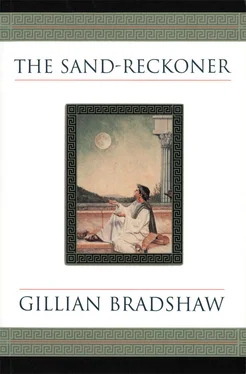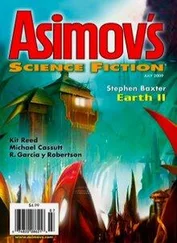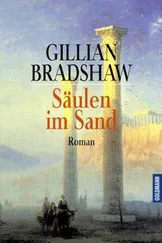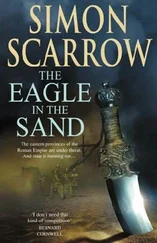Gillian Bradshaw - The Sand-Reckoner
Здесь есть возможность читать онлайн «Gillian Bradshaw - The Sand-Reckoner» весь текст электронной книги совершенно бесплатно (целиком полную версию без сокращений). В некоторых случаях можно слушать аудио, скачать через торрент в формате fb2 и присутствует краткое содержание. Жанр: Исторические приключения, на английском языке. Описание произведения, (предисловие) а так же отзывы посетителей доступны на портале библиотеки ЛибКат.
- Название:The Sand-Reckoner
- Автор:
- Жанр:
- Год:неизвестен
- ISBN:нет данных
- Рейтинг книги:3 / 5. Голосов: 1
-
Избранное:Добавить в избранное
- Отзывы:
-
Ваша оценка:
- 60
- 1
- 2
- 3
- 4
- 5
The Sand-Reckoner: краткое содержание, описание и аннотация
Предлагаем к чтению аннотацию, описание, краткое содержание или предисловие (зависит от того, что написал сам автор книги «The Sand-Reckoner»). Если вы не нашли необходимую информацию о книге — напишите в комментариях, мы постараемся отыскать её.
The Sand-Reckoner — читать онлайн бесплатно полную книгу (весь текст) целиком
Ниже представлен текст книги, разбитый по страницам. Система сохранения места последней прочитанной страницы, позволяет с удобством читать онлайн бесплатно книгу «The Sand-Reckoner», без необходимости каждый раз заново искать на чём Вы остановились. Поставьте закладку, и сможете в любой момент перейти на страницу, на которой закончили чтение.
Интервал:
Закладка:
He looked at her in surprise, touched despite himself. He and Sosibia had never been friends. When they first met, her chief concern had been to make it clear that though he might have been purchased to replace the household's previous manservant, she had no intention of allowing him to take the dead man's place in her bed. Marcus had not at first understood her (he had been eighteen at the time, fresh from Italy and almost Greekless), but when at last he did, he in turn had made it clear that the very idea of sleeping with a plain, fortyish household slave disgusted him. This unanimity about sleeping arrangements had not, obviously, led to any feelings of goodwill, and for years they feuded, Sosibia sneering at Marcus as a crude barbarian, and Marcus disdaining Sosibia as a servile old woman. Now she was welcoming him back. "Well," he said gruffly, "it's good to be here."
There was a silence, and then he nodded to the two children, who stood behind their mother, watching- Chrestos, a boy of fifteen, and thirteen-year-old Agatha. "You two have grown," he commented. Another reason not to be welcome, he thought privately. Four adult slaves was too many for one middle-class household: now that Marcus was back, it was quite likely that Chrestos would be sold. But Sosibia had not acknowledged this uncomfortable prospect, so he ignored it as well. "When we came up to the house, I thought to myself that there'd be a lot of work waiting for me," he said instead. "I'd forgotten we have another man about the place now."
Chrestos grinned. "Welcome home, Marcus," he said. "You're welcome to do my work if you want to!"
His little sister laughed, slipped forward suddenly, and gave Marcus a shy kiss on the cheek. "Welcome home!" she whispered.
Not home, Marcus reminded himself, but some part of him was still glad. The first year of his slavery had been a nightmare he still sweated to remember, but that nightmare had ended in this house, and he had waked again to a world governed by sane rules. "It's good to be back," he repeated gruffly.
There was another silence, and then Marcus jerked his head at the doorway on the other side of the small courtyard and asked, "Is the old man dying?"
Sosibia hesitated, then made a gesture against evil and nodded. "Jaundice," she said resignedly. "He can't eat now, poor man: he lives on barley broth and a little honeyed wine. It won't be much longer."
Marcus reflected on Phidias. A kind man; an honest, hardworking citizen; a loving husband and father. A good master. He might resent the man for that last, but it was not Phidias' fault that he himself was a slave. "I'm sorry," he said sincerely; then added, in a harsh voice, "The gods made us mortal. It will come to us all."
"He has lived well," said Sosibia. "I pray the earth receives him kindly."
Archimedes stayed with his father for half an hour, retreating when the dying man fell asleep. He himself had no interest in anything more that night. Sosibia and his mother made up the bed in his old room, and he lay down and sought oblivion in sleep.
He woke early next morning, and lay for a while looking at the patterns the rising sun made upon the wall beside his bed. The window shutter was of wickerwork woven in a crisscross pattern and covered the whitewashed plaster with bars and triangles of orange light. As the sun rose higher, the light grew paler and the triangles shifted and widened. They slid from the wall onto his bed, where they lay in bright profusion over the sheet, like tiles of fresh ivory.
His eyes stung. In Alexandria he had purchased a game for his father, a set of ivory tiles cut into squares and triangles. They could be fitted together to form a square, or arranged to make a ship, a sword, a tree, or any of a hundred other figures. The puzzle was a geometer's delight. He'd liked it, so he'd been sure his father would too. Gifts given to his father now were destined for the grave. That fact was an enormity so devastating that it left him feeling as if half his soul had been removed.
When Archimedes was growing up, Phidias had been the one person who really understood. It had often seemed to Archimedes that everyone else had a blind spot in the middle of the head. They could look at a triangle, a circle, a cube- but they couldn't see it. Explain it to them, and they couldn't understand. Explain the explanation, and they stared and wondered aloud why you thought that was so wonderful. Yet it was, unspeakably wonderful. There was a world there, a world without material existence but luminous with pure reason, and they couldn't see it! Only Phidias had seen it. He had shown it to Archimedes, taught him its ways and its rules, and joined in with all his exclamations of amazement. As Archimedes grew older, they had gone on to explore the other world together. They had been co-conspirators, laughing together over an abacus, arguing together about axioms and proofs. They had walked together into the hills on clear nights, to observe the rising and setting of the stars and take sightings of the altitude of the moon. Only the two of them, out of all Syracuse, were at home in the invisible world. Others- even the closest and best loved of others- were forever outsiders.
It had been Phidias who suggested that Archimedes go to Alexandria. "I went when I was your age," he said, "and I heard Euclid himself lecture. You must go." He had sold a vineyard he could not afford the loss of, parted with a slave he could not easily do without, so that his son could study mathematics at the world's greatest center of learning. And Alexandria had been everything Phidias had promised- but it had been more, as well. For the first time, Archimedes had found others who understood, and some of them were young men of about his own age. It was the first time in his life he hadn't felt like a freak; the first time he'd been free to open up his mind outside his own house. So he had tossed it open to embrace the sky, and the ideas came in- thronging, pushing for attention, scattering, battling, seething, dancing together. He had felt like a fish raised in a garden pond, suddenly discovering the vastness of the sea. It was a liberation more intoxicating than anything he had ever imagined.
At the end of the first year, Phidias had started to write letters asking, "When are you coming home?" and Archimedes had not known how to answer them. Instead he had written to tell his father about Aristarchos' hypothesis that the earth went around the sun, about Conon's work on eclipses, about the Delian problem, and the attempts made by various geometers to square the circle. And Phidias had replied in kind- amazed and enthusiastic, full of arguments and proofs- but somewhere in his every letter, there the question would be again: "When are you coming home?" Archimedes had known- oh, with perfect clarity! — that his father missed him terribly; that Phidias now had no one to share his ideas with, no one to understand him. But he had not wanted to go home.
Then, early in the spring, Phidias' last letter: "A war has started with Rome, and I am not well. I have had to stop teaching. Archimedion dearest, you must come home. Your mother and your sister need you." Your mother and your sister. Phidias himself had needed Archimedes long before, but for himself he had made no demands- only asked that one pleading question, persistently ignored.
This time the question was a command, and could not be ignored. Archimedes had slowly and reluctantly gone about the business of selling the furniture he'd bought in Alexandria, finding another tenant for the rooms he rented, disposing of a few machines he'd built and some of the tools he'd bought to make them. He had welcomed every delay. When his ship finally set sail for Syracuse, he had wept to see Alexandria dwindle behind him. Those tears seemed shallow now: the grief that lay before him would be much deeper.
Читать дальшеИнтервал:
Закладка:
Похожие книги на «The Sand-Reckoner»
Представляем Вашему вниманию похожие книги на «The Sand-Reckoner» списком для выбора. Мы отобрали схожую по названию и смыслу литературу в надежде предоставить читателям больше вариантов отыскать новые, интересные, ещё непрочитанные произведения.
Обсуждение, отзывы о книге «The Sand-Reckoner» и просто собственные мнения читателей. Оставьте ваши комментарии, напишите, что Вы думаете о произведении, его смысле или главных героях. Укажите что конкретно понравилось, а что нет, и почему Вы так считаете.












